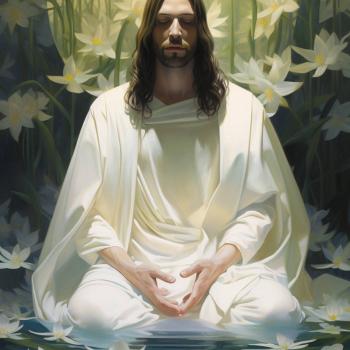Through this challenge, churches might just push beyond warped depictions of who can love whom; who can minister to whom, and so on. In other words, black churches will need to alter their vocabulary and grammar -- becoming more fluent in the language of the public sphere. Liberation theologies that claim these churches (e.g, the black theology discussed during President Obama's campaign) should provide help with this transition, but the state of black churches might also speak to the decline of these theological discourses.
What it means to be black and religious will continue to involve something of black church practice and thought; but other traditions -- including humanism -- will gain ground. Many black churches will lose some of their spheres of contact (perhaps areas they never controlled through more than rhetoric) and will instead serve to sacralize mundane life, providing members just enough ‘religion' to get by but not so much as to offend.
This demoting of black churches will not simply result from external pressures -- those opposed to churches for whatever reason(s) -- but will also result from internal inconsistencies and conservatisms. How can churches address current and pressing issues of discrimination when sexism and homophobia are so very alive within pulpits and pews? How can these churches speak to the integrity of life when in practice and conversation they reflect a deep distrust and discomfort with physical bodies and how they give and receive pleasure? How can churches address in sustainable ways community development when they can't manage their own budgets?
Rather than creative and expansive approaches, it is more likely many black churches will approach the 21st century the way most approached the 19th and 20th centuries -- through theological reaction and religious xenophobia. (The churches you are naming as you read, the ones you believe contradict this claim, are simply exceptions to the rule. Your church may be different, but most aren't.) While black churches won't disappear altogether, their rather inconsistent importance to African American life will be continuously exposed and black churches will hold on to a smaller sphere of importance and influence. Yet, rest assured, on those special occasions -- Christmas, Mother's Day, Easter and so on -- some will still get dressed and make their way to the obligatory service. However, the declining reach of black churches suggests something worth noting: More important than those Sunday activities is what African Americans do with the rest of the week.
Anthony B. Pinn is Agnes Cullen Arnold Professor of Humanities and Professor of Religious Studies at Rice University. His research and teaching interests including African American religious thought, religion and popular culture, religious aesthetics, and African American humanism. Pinn is the author/editor of twenty-four books, including Terror and Triumph: The Nature of Black Religion, Embodiment and the New Shape of Black Theological Thought, and African American Humanist Principles: Living and Thinking Like the Children of Nimrod. He is also the director of research for the Institute for Humanist Studies.




